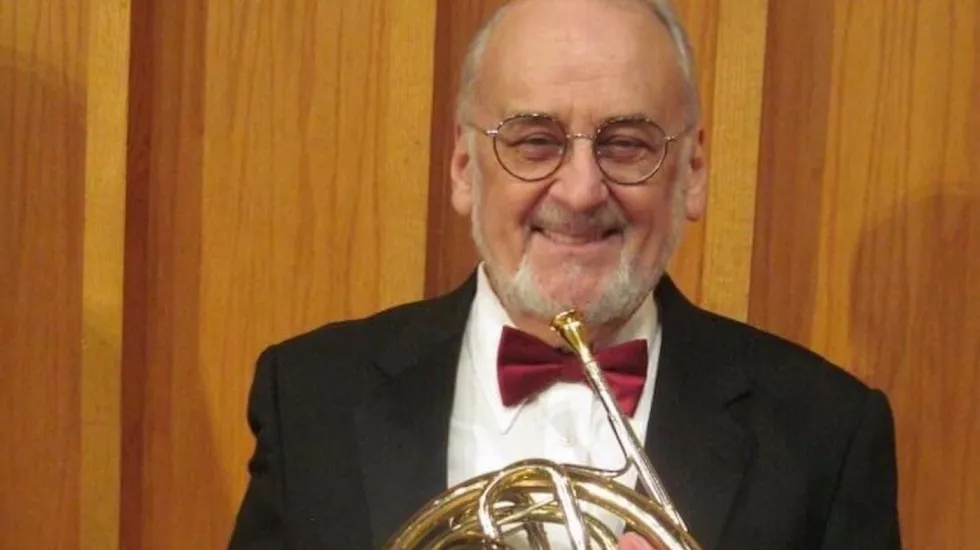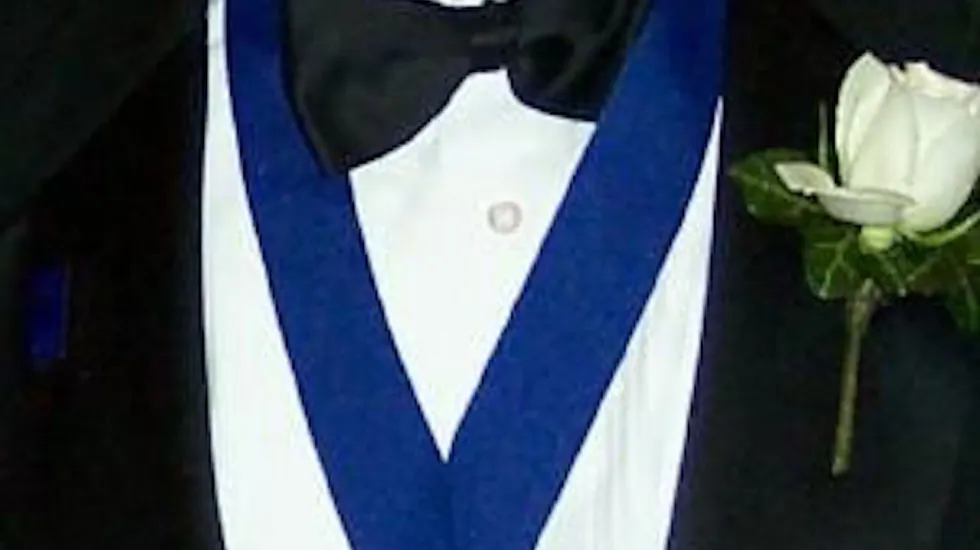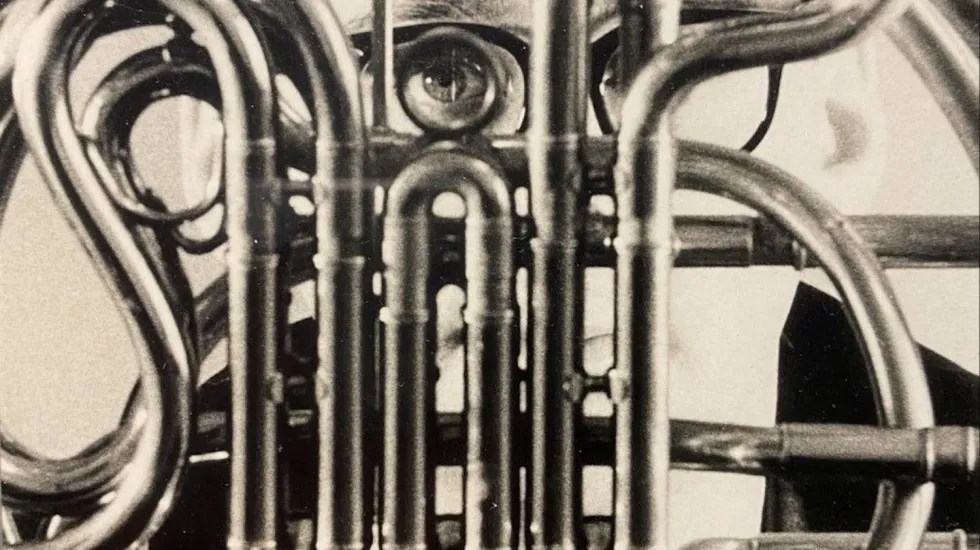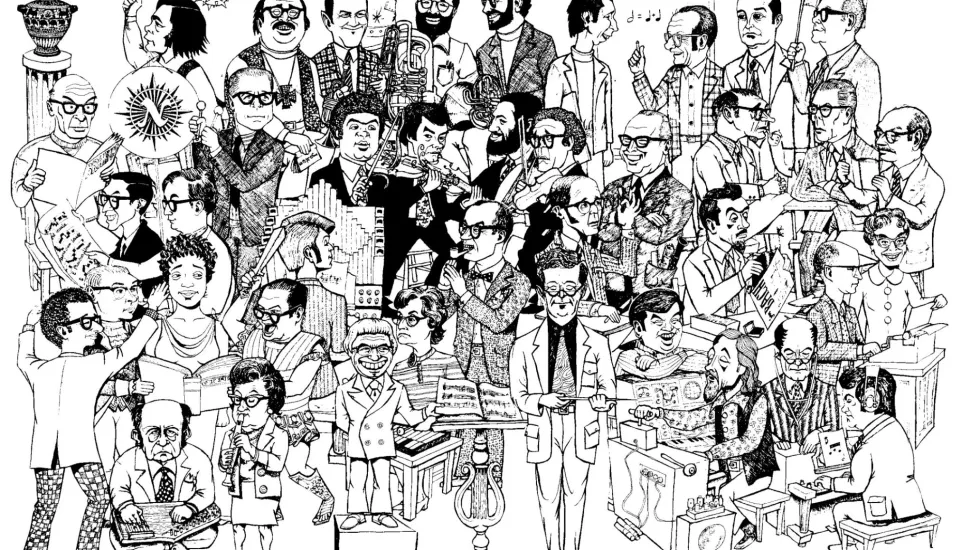
Jan Bach’s father hoped he’d take over the family lumber business. Instead, he took to the piano and music after his mother encouraged him to learn to play.
“She wanted him to be popular, and, of course, she wanted him to get invited to parties,” said his daughter Dawn.
Mr. Bach went on to study with composer Aaron Copland at the Tanglewood Music Center in Massachusetts, played the French horn in an Army band at the funeral of President John F. Kennedy and became a renowned and prolific composer of complex music performed around the globe.
In 1980, his work “The Student from Salamanca” won the $10,000 first prize in a one-act opera competition by the New York City Opera, which performed his piece that year. Soprano Beverly Sills, the company’s chief, phoned to congratulate him and inscribed her nickname — “Bubbles” — on a silver bowl she gave him as a gift.
A memorial is planned at the end of the month for Mr. Bach, who taught for nearly 40 years at Northern Illinois University.
He died of bladder cancer in 2020 at 82. But the memorial had been delayed due to the pandemic, his daughter said.

He grew up in downstate Forrest, a small farm town where his father John Nicholas Bach ran J.N. Bach & Sons Lumber, and his mother Ann worked part-time at a bank.
The family worshiped at a strict church.
“No instruments were allowed in the church, only singing,” his daughter said. “It’s interesting my dad ended up taking up the horn. And he played the piano very well. He was composing from the age of about 5.”
He went to Forrest-Strawn-Wing High School and the University of Illinois at Urbana-Champaign, where he got bachelor’s, master’s and doctoral degrees in music.

In the early 1960s, he studied at Tanglewood, where he was co-winner of the Koussevitzky prize for best composition of the summer. Copland was a judge.
Mr. Bach also met another maestro there, an encounter he described in an interview with radio host Bruce Duffie: “When I met Leonard Bernstein, years ago at Tanglewood, he said, ‘Oh, you’re Jan Bach.’ I said, ‘How do you know my name?’ And he said, ‘When I arrived this morning, I was looking at the roster of students, and I saw your name at the top. I thought: God, what a name for a musician! So what’s your real name?’ ”
“Bach!” young Jan replied. “What’s yours?”
Mr. Bach did his dissertation on composer Benjamin Britten and was proud that his composition “Eisteddfod” was performed in Britten’s hometown of Aldeburgh in England in 1979, his daughter said.
In Aldeburgh, he also studied with Scottish composer Thea Musgrave.
After the Army, he worked as an instructor at the University of Tampa and then at NIU, where he taught from 1966 to 2004.

“He liked to write for instruments that don’t usually get to see the spotlight,” his daughter said. “He wrote for the euphonium. He wrote a concerto for the viola. He wrote one for the steelpan.”
Mr. Bach was inspired to write “Concerto for Steelpan and Orchestra” for Liam Teague when Teague was a student steelpan virtuoso at NIU. The steelpan is the national instrument of Trinidad and Tobago, where Teague, now an NIU professor, is from.
“He was a musical genius,” said Teague, who has performed the work around the world. “But he was such a kind person and super-funny.”
Mr. Bach joked that he completed his piece “The Happy Prince” thanks to candy.
“I had been trying to kick a cigarette habit for a long time, and that was one of the times when I stopped smoking and was basically OD-ing on jellybeans,” he told Duffie. “I think that sugar did something to me because it’s one of the most involved scores I’ve ever written.”
His works could be playful. At the end of the steelpan concerto, “There’s a sort of duel between the steelpan and an instrument called the flexatone,” said Teague, who posted video on YouTube of his 2011 performance of the piece with the Taiwan National Symphony.
The Chicago Daily News once described Mr. Bach’s output this way: “His music tends to go its way awhile along innocent neo–classical lines. But every now and then, a touch of poetry or wit or sheer boisterous humor alerts the listener to the real sophistication and hidden depth of what the composer is doing.”
“He was generous to all of his students and all who worked with him,” said Jui-Ching Wang, an associate music professor at NIU, sharing teaching materials and offering encouragement.
He liked to write his compositions with pricey Blackwing pencils and take photos with a 3D camera. He enjoyed the gentle humor of Laurel and Hardy and the old radio show “Vic and Sade” as well as TV’s long-running “Gunsmoke.”
Mr. Bach is also survived by his former wife Dalia, daughter Eva, brother Eric and three grandchildren.
His memorial will be held at 1 p.m. April 30 at St. Paul’s Episcopal Church in DeKalb, with a reception after.
A celebration of his music is planned for 7 p.m. May 1 at Boutell Memorial Concert Hall in the NIU Music Building, where the first Jan Bach Prize in Music Composition is to be awarded to a young composer.
Teague said he’ll perform the steelpan concerto there that Mr. Bach wrote after hearing him play.







